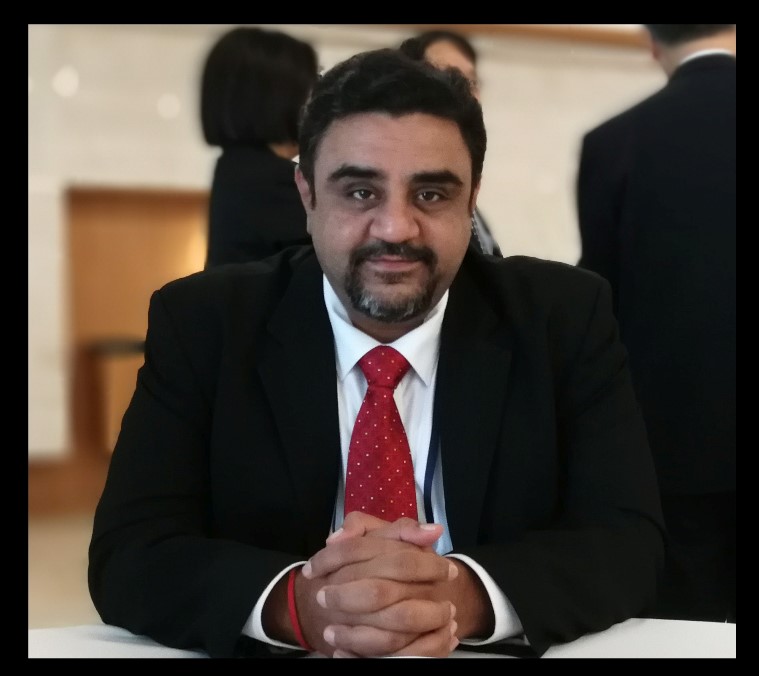KUALA LUMPUR, Dec 1 — Malaysian public health experts are calling for “pragmatic measures”, such as increased Covid-19 booster vaccinations and genomic surveillance, instead of all-out lockdowns and border closures to deal with the new Omicron variant.
Infectious disease expert Prof Dr Adeeba Kamarulzaman said the best preparation for Omicron and other potential new coronavirus variants in the future include a systematic, strengthened, and expanded genomic surveillance; increased testing to include post-arrival; as well as addressing vaccine hesitancy.
“[We need to] address vaccine hesitancy for booster doses, especially amongst those who received the inactivated vaccines, particularly among those who are older, immunocompromised, diabetic, and overweight — please get yourselves a booster dose as soon as possible,” Dr Adeeba said when contacted by CodeBlue yesterday.
When asked if she would recommend border closures to prevent the transmission of Omicron in Malaysia, Dr Adeeba said: “I am not sure that border closure is the answer — perhaps temporarily until we know and understand more about Omicron”.
Defence Minister Hishammuddin Hussein said yesterday that the Covid-19 Ministerial Quartet has decided to suspend Malaysia’s transition to the endemic Covid-19 phase and to impose stricter international border controls on countries that have reported cases of the Omicron variant that is feared by scientists worldwide to be more contagious with possible vaccine evasion.
Malaysia has not yet fully reopened international borders, but launched vaccinated travel lanes (VTL) with Singapore via air and land Monday to enable quarantine-free travel. So far, the Malaysian government has prohibited the arrival of foreigners from seven southern African countries — South Africa, Botswana, Eswatini, Lesotho, Mozambique, Namibia, and Zimbabwe — and imposed a 10-day quarantine at designated facilities for Malaysians and permanent residents arriving from those nations.
According to CNN, 19 countries across Africa, Europe, Asia, and North Canada so far have reported Omicron infections. Omicron — which has an “extremely high” 32 mutations on its spike protein, compared to eight mutations with the Delta variant — has been detected in the United Kingdom, Canada, Australia, Hong Kong, Israel, and several European countries.
Two Omicron cases were also reported in travellers who recently flew from South Africa to Sydney, Australia, via a Singapore transit.
Stephane Bancel, head of US vaccine developer Moderna, told the Financial Times that existing Covid-19 vaccines would have a “material drop” in their effectiveness against Omicron and that it would take months to develop new versions of coronavirus vaccines.
The UK’s Joint Committee on Vaccination and Immunisation (JCVI), in a press conference on Monday, said the country has yet to see any data to suggest that the new Omicron variant of concern is different from previous variants in terms of who is at higher risk of severe Covid-19 disease — older adults and people with underlying health conditions.
The JCVI has expanded the UK’s coronavirus booster doses to all adults aged 18 and above and shortened intervals for boosters from six to three months after the second dose. The UK government’s vaccine advisers have also recommended Covid-19 booster doses, or fourth jabs, for severely immunocompromised individuals.
Universiti Malaya epidemiologist Prof Dr Sanjay Rampal said “higher intensity measures” such as travel bans and quarantines should be reserved for variants of high concern.
“It is likely that Omicron will spread globally due to the ease of travel these days. The prevalent strain in Malaysia currently is the Delta strain and it is still unknown whether the Omicron strain will outcompete the Delta strain. Only time and surveillance data will tell. I don’t think travel bans and quarantine are warranted every time a new strain is reported,” he told CodeBlue.
“It is reported that the Omicron strain is more transmissible but we need more real-time data on whether it would out-compete the Delta strain. We should reserve more intensive interventions for strains with mutations that increase the severity of the disease as it leads to more severe cases needing hospital care,” he added.
Reports coming out from South Africa about the severity of Omicron infections are mixed. The Washington Post reported an increase in hospitalisations of children below two years old for Covid-19 in South Africa. The City of Tshwane Metropolitan Municipality, which includes the Gauteng Province that is heavily affected by Omicron, reported that the highest number of Covid-19 hospital admissions from November 14 to 28 were infants.
Dr Sanjay said newer strains of the coronavirus are expected to be more easily transmissible from a virus evolutionary viewpoint, as strains that are less transmissible than the Delta variant will find it very difficult to circulate and will eventually die out.
“I would not change the Covid management of our post-vaccinated population just based on the higher transmissibility of a virus,” Dr Sanjay said.
Health Minister Khairy Jamaluddin on Monday said the government will not yet consider lockdowns, pending further data on the new Omicron Covid-19 variant.
The health minister said Malaysian researchers are looking into Omicron and that the government is seeking information from the World Health Organization (WHO) and other countries. “Even when we control our borders against a few countries, we want to make sure our response is proportionate to the risk. We don’t know yet the full extent of the risk.”
Dr Christopher Lee, former national advisor for infectious diseases in the Ministry of Health (MOH) recently applauded United States president Joe Biden’s decision to not call for an Omicron lockdown for now, with Dr Lee calling the variant a “cause for concern, not a cause for panic”.
Dr Lee, in a tweet, said proactive but pragmatic measures are needed rather than over-the-top interventions that cause more harm than benefit. “Let science lead,” he said.
In another tweet, Dr Lee called for balanced measured responses as more data on the Omicron variant is being gathered. “Even as more travel bans are being imposed, it is clear that the Omicron had a headstart with more nations reporting cases, not from South Africa and its neighbours.”








